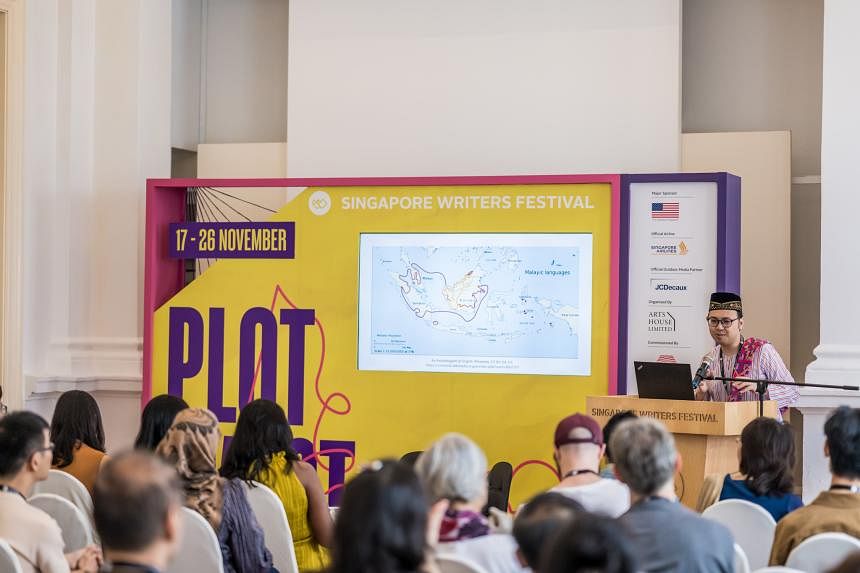
SINGAPORE – Intercultural and transnational panels on literature and identity yielded some of the richest conversations of the Singapore Writers Festival on Nov 25, the penultimate day of the 10-day affair.
A panel in English comprising writers from the Malay, Tamil and Chinese communities offered three different frameworks – Nusantara, Thinai and Nanyang respectively – which expanded the notion of diaspora in Singapore and the region.
Despite an early morning start, the hearty feast of ideas drew praise from audience members that this was the best panel at the festival.
Inter-island travel as a coming-of-age practice – the Minangkabau word for it is merantau – or for trade is common among many cultures within the Nusantara, and it produced unique forms of literature that spoke to the wanderer’s experience, said museum docent Hafiz Rashid.
He added that Malay involvement in trade led to the rise of a poetic form known as the pantun dagung, “which highlights this sadness and longing of the difficulty of being someone overseas without the connection or the social networks”.
Similarly, according to Dr Chan Cheow Thia, the concept of Nanyang (literally South Seas) for the Chinese diaspora was shaped by waves of migration to modern-day South-east Asia since the Ming dynasty and offers a complicated picture of Chinese Singaporean identity.
To demonstrate, Dr Chan, author of Malaysian Crossings (2022), read an excerpt from an English-language translation of Chia Joo Ming’s Reconstructing The Image Of Nanyang, slated to be published by Ethos Books in 2025.
He explained its significance: “The story really illustrates that, for Singaporean Chinese families, it’s actually really likely their family migration histories do not directly relate to China… This idea of a singular homeland is really fraught.”
While a concept like Nanyang or Nusantara does not exist in the Tamil-speaking diaspora, children’s book author Jayasutha Samuthiran suggested the term Thinai – which she defines as “the five different types of land and an abstract concept of moving through different types of land”.
She noted that the Tamil diaspora displays distinct local characteristics such as the grand scale of the Hindu festival Thaipusam in Malaysia and Singapore as compared to in India and the worship of different gods like Muneeswaran.
Later in the afternoon, a conversation between Taiwanese writer Wu Ming-yi, Malaysian writer Fabian Fom and Singaporean bookseller Tan Waln Ching presented a comparative perspective on the state of independent bookstores in the Chinese-reading world and attracted a full house.
